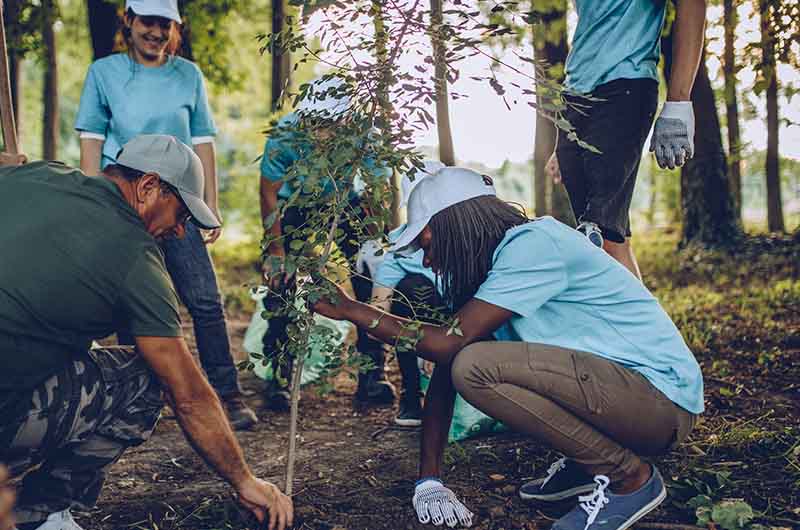Volunteering is a health practice, studies find

Volunteer work puts a different spin on the phrase “doing well by doing good.”
For decades, researchers have seen a link between better health and volunteering, said Jeffrey Burr, a professor of gerontology at the University of Massachusetts Boston. Evidence, including from several studies Burr led or co-wrote, has grown exponentially.
"We're convinced that volunteering does have positive ramifications for well-being," Burr said.
Researchers can't explain all the connections yet. But some are clearer than others, such as the link to mental health.
"Compared to non-volunteers, volunteers have less depression, less anxiety, higher self-esteem, higher life satisfaction, greater happiness and greater sense of meaning in life," Burr said.
Burr also has examined how volunteering affects heart health. In a study published in The Gerontologist in 2015, middle-aged volunteers were less likely to have abdominal fat and high blood glucose than non-volunteers. They also had healthier levels of "good" HDL cholesterol. Older volunteers were less likely to have high blood pressure than their non-volunteer counterparts.
Other studies have had similar findings. One, published in JAMA Pediatrics in 2013, found that high school students who were asked to volunteer had better markers for heart disease risk than high schoolers who were told to wait for a semester.
Eric Kim, an assistant professor of psychology at the University of British Columbia in Vancouver, Canada, co-wrote a study that looked at relationships between volunteering and health in nearly 13,000 U.S. adults over 50. Echoing earlier work, this study, published in 2020 in the American Journal of Preventive Medicine, found that people who volunteered at least 100 hours per year had a reduced risk of dying over a four-year follow-up period compared with non-volunteers.
Several studies, including Kim's, have found that about two hours of volunteer work a week seems to be the minimum for seeing a health benefit.
Kim's work, however, did not link volunteering with benefits to specific health conditions such as high blood pressure. Such contrasts with other research highlight why experts are still working to answer the question of why, exactly, volunteering is healthy.
"That's really sort of the cutting edge right now," Burr said.
Part of it may be stress reduction. Chronic stress is a risk factor for poor health, and volunteering seems to alleviate its harm.
Research has linked volunteering with increased physical activity and reduced loneliness, Kim said. "Loneliness actually has a pretty large negative impact on physical health," he said.
Volunteering can help build stronger social networks in a way that probably differs from simply hanging out with friends, Kim said. Volunteering, he said, has an "overarching, outward-focused, pro-social motivation," making it more "soul-nourishing."
There might be an evolutionary basis for that, Kim said. Some scientists theorize that early humans would have benefited from helping one another, which means we might be hard-wired to feel rewarded by generous activity. Kim noted a 2011 study in Health Psychology that suggested people who volunteered for altruistic reasons were at lower risk of dying four years later than non-volunteers, while those volunteering for self-centered purposes saw no benefit.
It's unclear how specific volunteer work might affect people, Kim said. "That is another important factor that has just not been examined particularly well."





